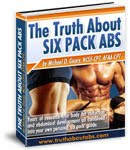Teenagers are at one of the busiest growth stages of their life and it is important for them to be getting all the right nutrients to support that growth.
Their diet may be comprised of pizza, fried foods, chips, and sugar-laden sodas, making a ripe atmosphere for the development of acne and other health problems.
What is a vitamin?
Vitamins are essential nutrients found in most of the foods we eat, as well as in dietary supplements. They are critical in helping our bodies to function normally, slow the aging process, and help fight disease.
A good diet will usually be enough for us to receive all the essential nutrients, but if a particular area is lacking, supplements can be used.
Two categories:
Essential nutrients are available as fat soluble and water soluble. Fat soluble vitamins easily dissolve in fat and can accumulate in the body to cause toxicity. Fat soluble vitamins include A, D, E, and K.
Water soluble vitamins on the other hand are not stored by the body and need to be constantly replenished. Examples of this category are vitamins B and C.
Vitamin sources:
Vitamins come from plant sources while minerals come from the soil and aren't organic. They are soaked up by plants and eaten by animals. This allows us to get our required intake of these nutrients.
What are the benefits of supplements?
If you are not getting the proper nutrition in your diet, you may need to supplement with vitamins and minerals. Benefits include:
- Immune system booster.
- Aid in growth
- Helps the efficient functioning of organs.
Healthy diet For Teens:
While a teen is undergoing all the associated growth and physical change it is important their diet helps facilitate this. The diet needs to include:
- Fruit and vegetables.
- Whole grains and nuts.
- Lean meats, fish, and poultry.
- Dairy that is low in fat.
Vegetarians must be careful to avoid vitamin deficits in zinc and iron, which are found in animal products. These trace minerals can be obtained in dried beans, seeds, nuts, and fresh green vegetables.
Red blood cell production is aided by B12. If you don't eat meat, try to get B1 from other sources such as eggs, dairy and whole grains.
Vegans, who will have nothing to do with animal products, must take vitamin and mineral supplements to avoid vitamin deficiencies and maintain health.
Teenagers who have a poor diet should look for some assistance in learning how this can be improved by either eating the right foods or taking the necessary supplements.
Jared Wright is the marketing manager of Clivir.com - A free learning community site where you can learn more about health. You can follow the links to find more related articles such as liquid vitamins minerals and liquid vitamin d.
Article Source: http://EzineArticles.com/?expert=Jared_Wright
Subscribe to:
Post Comments (Atom)
About Me

- Richie
- United Kingdom
- Hi im Richie! I am a professional rugby player and have always loved playing sport and keeping fit. I have luckily gained a lot of knowledge and first hand experience in all issues regarding health and fitness and i wish to share this with you.
Pages
Blog Archive
Labels
- 10 tips to bodybuilding success (1)
- abdominal exercises (1)
- confidence (1)
- effective muscle building foods (1)
- Flexibility (1)
- Give importance to health and fitness and get success in life (1)
- health (2)
- increased performance (1)
- lose visceral fat (1)
- muscle strains (1)
- raise cardio (1)
- recovery (1)
- six pack (1)
- vitamin and mineral supplements for teens (1)
Search This Blog
google-site-verification: googledf9a77230903cac8.html











